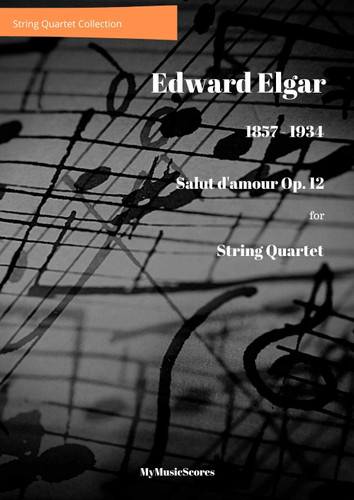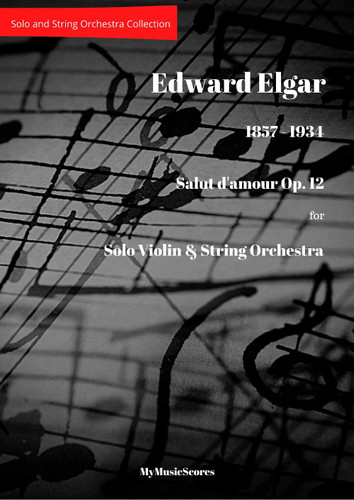-
 Elgar Carissima for Violin and String Orchestra
Elgar Carissima for Violin and String OrchestraLooking for a lyrical showpiece that lets your Grade 7 violinist shine with orchestral support? Edwa…
£19.99 -
 Elgar Chanson de Nuit Op 15 No 1 for Violin and String Orchestra
Elgar Chanson de Nuit Op 15 No 1 for Violin and String OrchestraImmerse yourself in the serene and reflective atmosphere of Sir Edward Elgar's beloved Chanson de Nu…
£19.99 -
 Elgar Chanson de Matin Op 15 No 2 for Violin and String Orchestra
Elgar Chanson de Matin Op 15 No 2 for Violin and String OrchestraImmerse yourself in the tender beauty of Sir Edward Elgar's beloved Chanson de Matin (Morning Song),…
£19.99 -
 Elgar Salut d'amour Op. 12 for Cello Quartet
Elgar Salut d'amour Op. 12 for Cello QuartetImmerse your audience in the tender beauty of Sir Edward Elgar's universally beloved Salut d'Amour (…
£6.99 -
 Elgar La Capricieuse Op. 17 for Solo Violin and String Orchestra
Elgar La Capricieuse Op. 17 for Solo Violin and String OrchestraUnleash a cascade of dazzling brilliance and playful charm with Sir Edward Elgar's captivating La Ca…
£19.99 -
 Elgar Salut d'amour Op. 12 for String Quartet
Elgar Salut d'amour Op. 12 for String QuartetElgar: Salut d'Amour Op. 12 for String Quartet Immerse your audience in the tender beauty of Sir Edw…
£9.99 -
 Elgar Salut d'amour Op. 12 Violin and String Orchestra
Elgar Salut d'amour Op. 12 Violin and String OrchestraElgar: Salut d'Amour Op. 12 for Violin and String Orchestra Immerse yourself in the tender beauty of…
£19.99

Elgar
Sir Edward William Elgar, 1st Baronet (2 June 1857 – 23 February 1934)
Sir Edward Elgar is an English composer who is best known for his contributions to classical music in the late 19th and early 20th centuries. He is perhaps most famous for his Enigma Variations, a series of pieces that were inspired by the personalities of his friends and colleagues. Elgar's music is known for its emotional depth and grandeur, and he is often referred to as one of the greatest British composers of all time.
Elgar was born in 1857 in the small town of Lower Broadheath, England. He was the fourth of seven children and grew up in a musical household where he learned to play the piano, violin, and cello. Despite being largely self-taught as a composer, Elgar quickly gained recognition for his talents and was appointed as the director of the Worcester Festival Choral Society at the young age of 24.
Throughout his career, Elgar wrote a wide range of compositions including symphonies, concertos, operas, and choral works. His music was greatly admired by many famous figures of the time, including King Edward VII who knighted Elgar in 1904. Elgar continued to compose until his death in 1934, leaving behind a legacy of beautifully crafted works that have stood the test of time.